-




-









-
IMPORTANT: PLEASE READ BEFORE POSTING Posting unsubstantiated rumours on this website is strictly forbidden.
Demonland has made the difficult decision to not permit this platform to be used to discuss & debate the off-field issues relating to the Melbourne Football Club including matters currently being litigated between the Club & former Board members, board elections, the issue of illicit drugs in footy, the culture at the club & the personal issues & allegations against some of our players & officials ...
We do not take these issues & this decision lightly & of course we believe that these serious matters affecting the club we love & are so passionate about are worthy of discussion & debate & I wish we could provide a place where these matters can be discussed in a civil & respectful manner.
However these discussions unfortunately invariably devolve into areas that may be defamatory, libelous, spread unsubstantiated rumours & can effect the mental health of those involved. Even discussion & debate of known facts or media reports can lead to finger pointing, blame & personal attacks.
The repercussion is that these discussions can open this website, it’s owners & it’s users to legal action & may result in this website being forced to shutdown.
Our moderating team are all volunteers & cannot moderate the forum 24/7 & as a consequence problematic content that contravenes our rules & standards may go unnoticed for some time before it can be removed.
We reserve the right to delete posts that offend against our above policy & indeed, to ban posters who are repeat offenders or who breach our code of conduct.
WE HAVE BUILT A FANTASTIC ONLINE COMMUNITY AT DEMONLAND OVER THE PAST 23 YEARS & WE WOULD LIKE TO CONTINUE TO BE ABLE TO DISCUSS THE CLUB WE LOVE & ARE SO PASSIONATE ABOUT.
Thank you for your continued support & understanding. Go Dees.
INDIGENE - THE SERIES
-
-
 Recently Browsing
0 members
Recently Browsing
0 members
- No registered users viewing this page.
-
 Demonland Forums
Demonland Forums 
-
-
 Match Previews, Reports & Articles
Match Previews, Reports & Articles 
PREGAME: Rd 08 vs Geelong
After returning to the winners list the Demons have a 10 day break until they face the unbeaten Cats at the MCG on Saturday Night. Who comes in and who goes out for this crucial match?
PODCAST: Rd 07 vs Richmond
The Demonland Podcast will air LIVE on Monday, 29th April @ 8:30pm. Join George, Binman & I as we analyse the Demons victory at the MCG against the Tigers in the Round 07. You questions and comments are a huge part of our podcast so please post anything you want to ask or say below and we'll give you a shout out on the show. If you would like to leave us a voicemail please call 03 9016 3666 and don't worry no body answers so you don't have to talk to a human. Listen & Chat
VOTES: Rd 07 vs Richmond
Last week Captain Max Gawn overtook reigning champion Christian Petracca in the Demonland Player of the Year Award. Steven May, Jack Viney & Alex Neal-Bullen make up the Top 5. Your votes for the win against the Tigers. 6, 5, 4, 3, 2, 1.
POSTGAME: Rd 07 vs Richmond
The Demons put their foot down after half time to notch up a clinical win by 43 points over the Tigers at the MCG on ANZAC Eve keeping touch with the Top 4.
GAMEDAY: Rd 07 vs Richmond
It's Game Day and the Demons once again open the round of football with their annual clash against Richmond on ANZAC Eve. The Tigers, coached by former Dees champion and Premiership assistant coach Adem Yze have a plethora of stars missing due to injury but beware the wounded Tiger. The Dees will have to be switched on tonight. A win will keep them in the hunt for the Top 4 whilst a loss could see them fall out of the 8 for the first time since 2020.
TRAINING: Tuesday 23rd April 2024
Demonland Trackwatcher Kev Martin ventured down to Gosch's Paddock to bring you his observations from this morning's Captain's Run including some hints at the changes for our ANZAC Eve clash against the Tigers. Sunny, though a touch windy, this morning, 23 of them no emergencies. Forwards out first. Harrison Petty, JvR, Jack Billings, Kade Chandler, Kozzy, Bayley Fritsch, and coach Stafford. The backs join them, Steven May, Jake Lever, Woey, Judd McVee, Blake Howes, Tom McDonald
OOZEE by The Oracle
There’s a touch of irony in the fact that Adem Yze played his first game for Melbourne in Round 13, 1995 against the club he now coaches. For that game, he wore the number 44 guernsey and got six touches in a game the team won by 11 points. The man whose first name was often misspelled, soon changed to the number 13 and it turned out lucky for him. He became a highly revered Demon with a record of 271 games during which his presence was acknowledged by the fans with the chant of “Oozee” wh
TRAINING: Friday 19th April 2024
They are out for a run just as it starts raining. It didn't last long, ended up a reasonable session weather wise. Light duties, BBB, rehab Farris-White, Melky, Salem and Spargo, all with private trainers. They are all playing soccer, huge amount of noise. 36-40 (difficult to get a count) in the main squad, biggest I've seen it in ages. Choco is barking out the orders. Goody has intense body language as he observes. Bowey in a lime green cap (no contact), and in the sim
ICEBREAKER by KC from Casey
The Casey Demons have broken the ice for season 2024 with a pulsating come-from-behind victory over Port Melbourne in which it took the lead for the first time at the halfway mark of the final quarter. The game played in mild Autumn conditions in neutral territory at Kinetic Park, Frankston, never reached great heights in standard but it proved gripping in character at the end at the Casey Demons overcame the Borough to win by 15 points after trailing badly early in the second half. P
-
 Tell a friend
Tell a friend


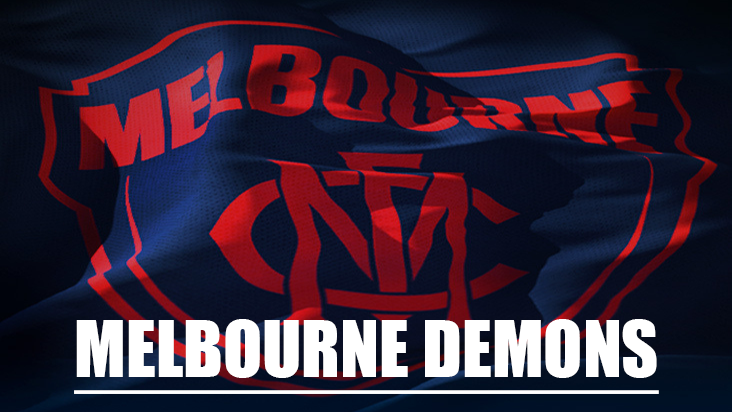
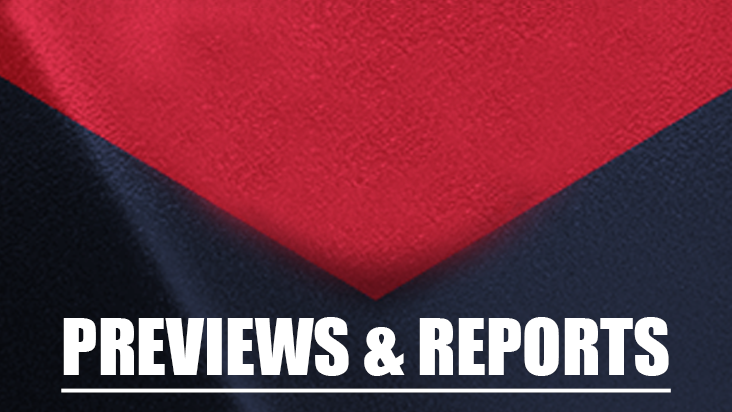
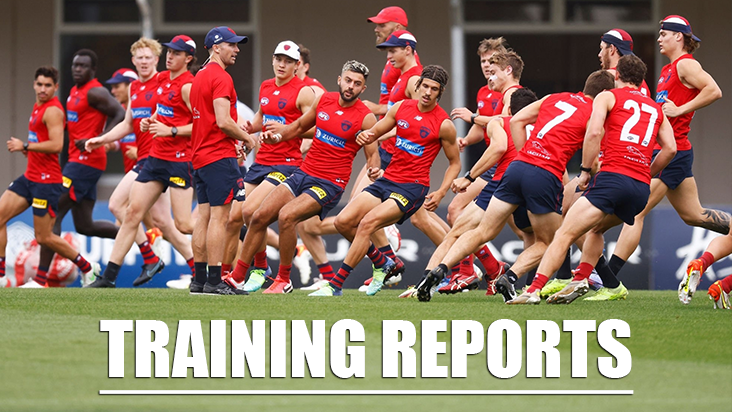
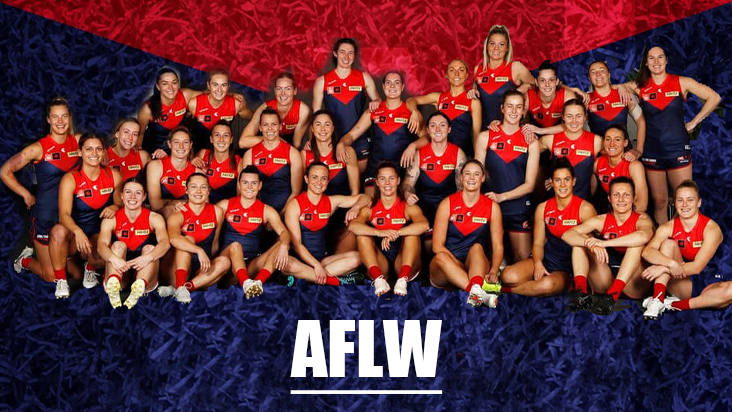
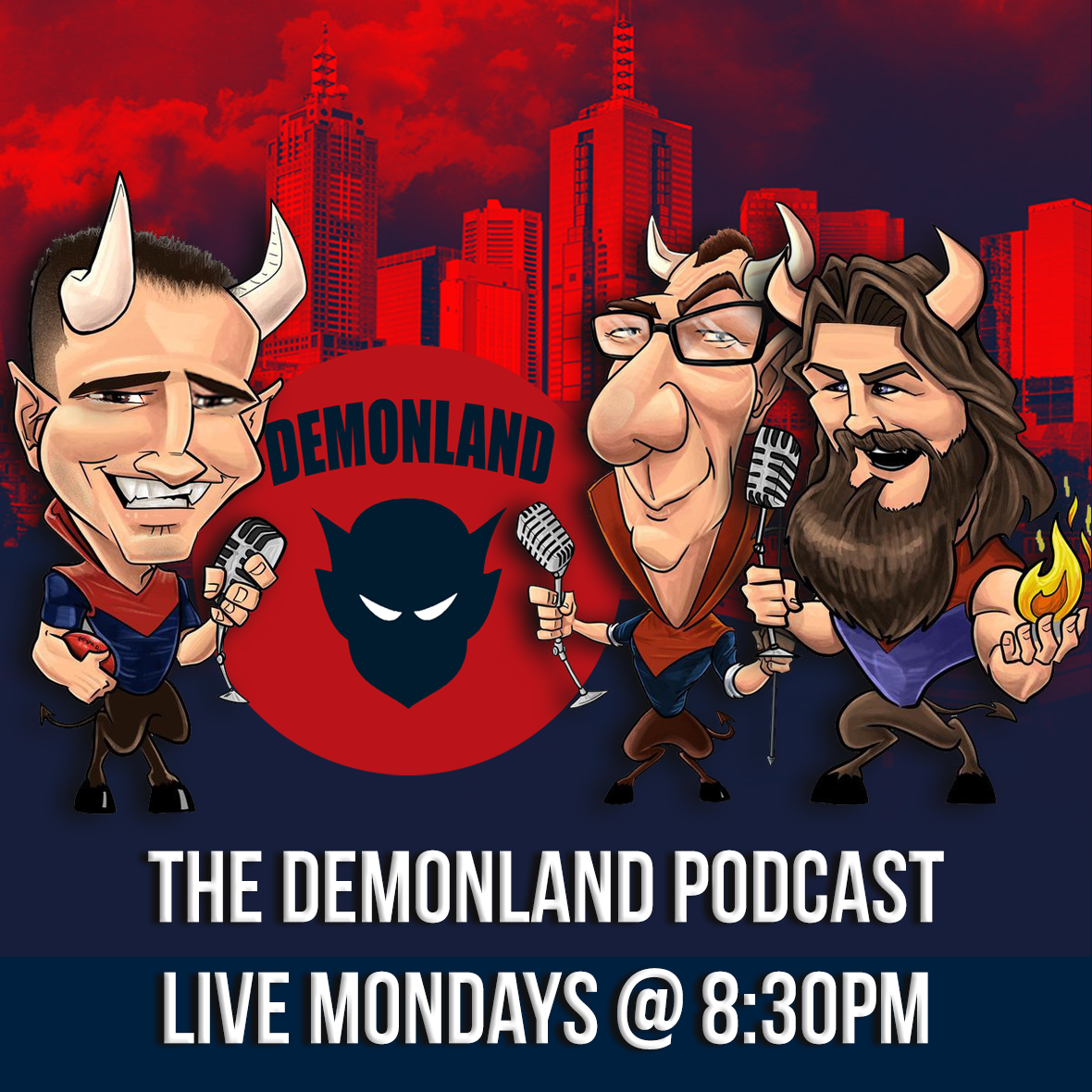



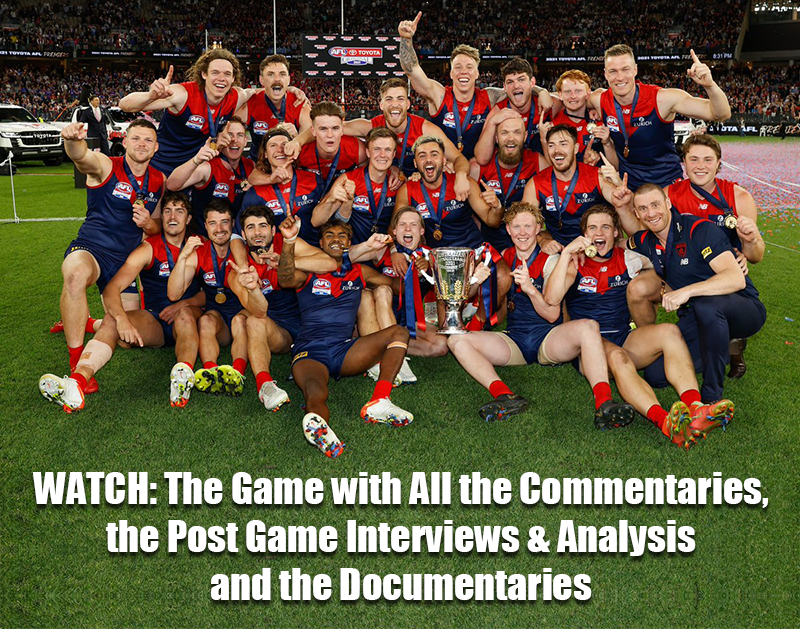
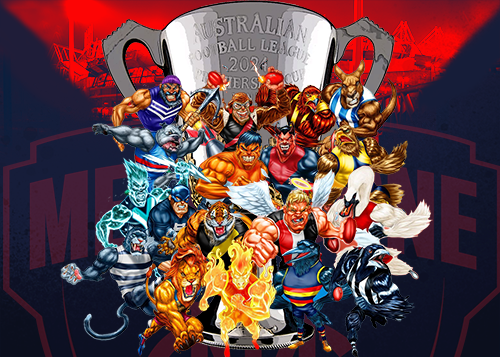
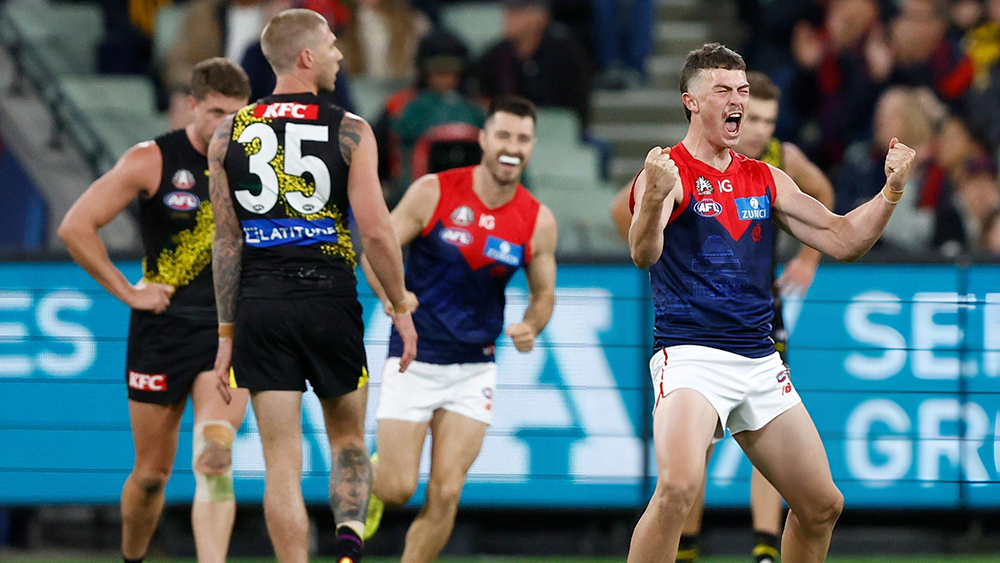

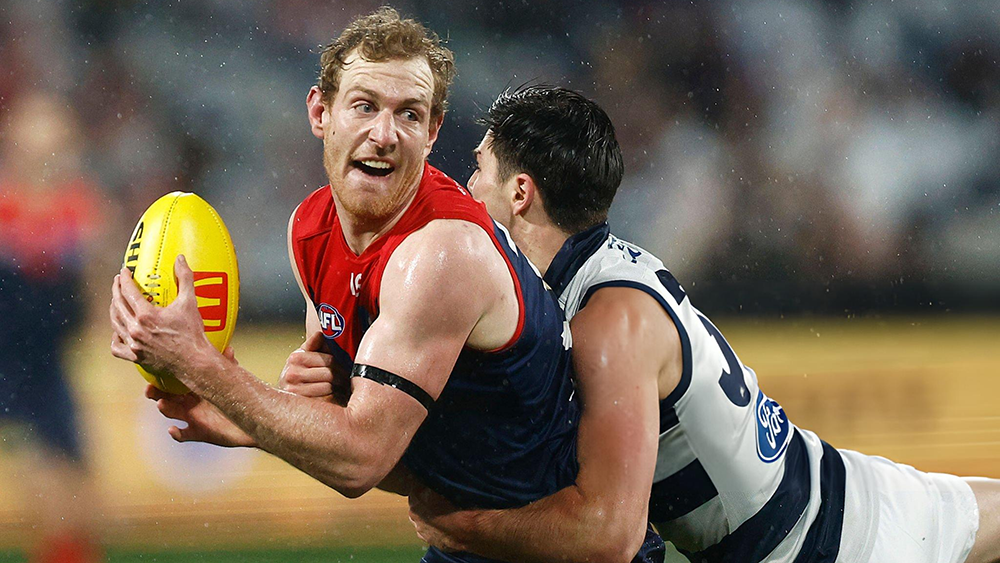
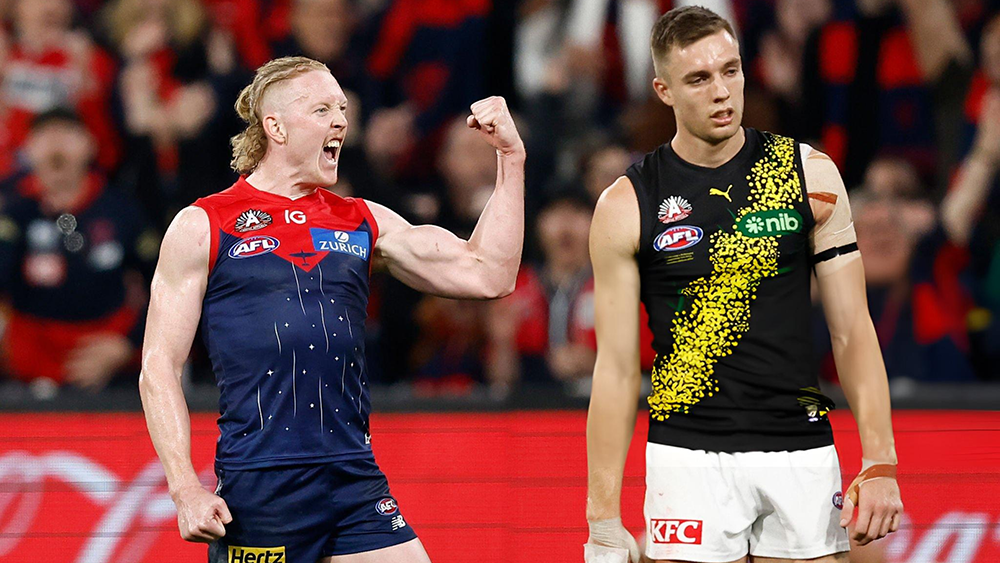
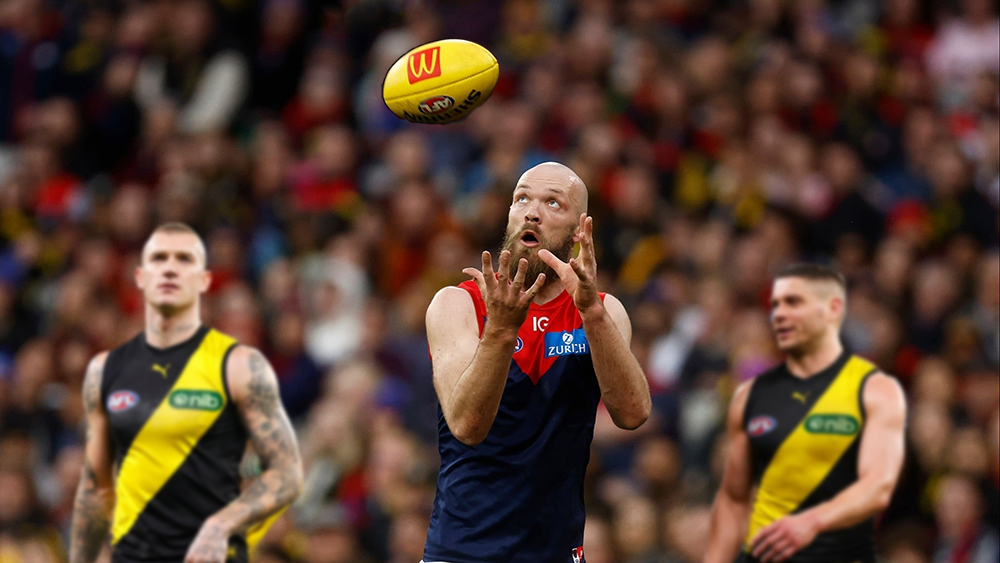
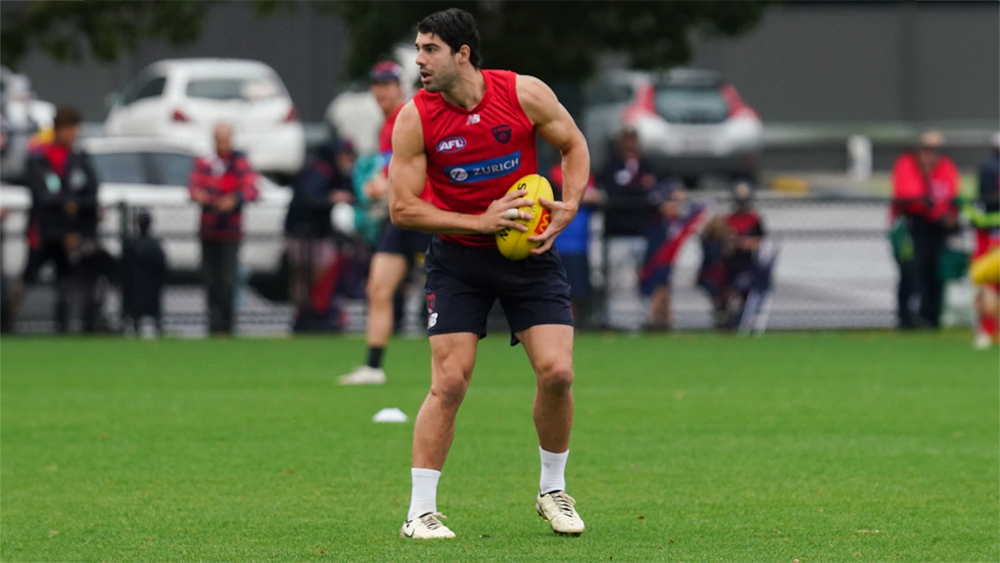
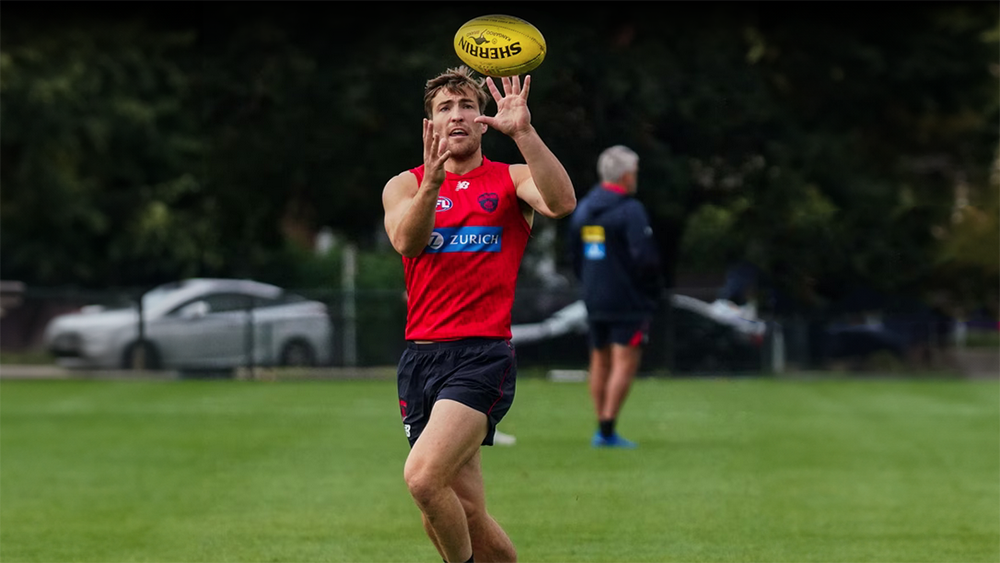
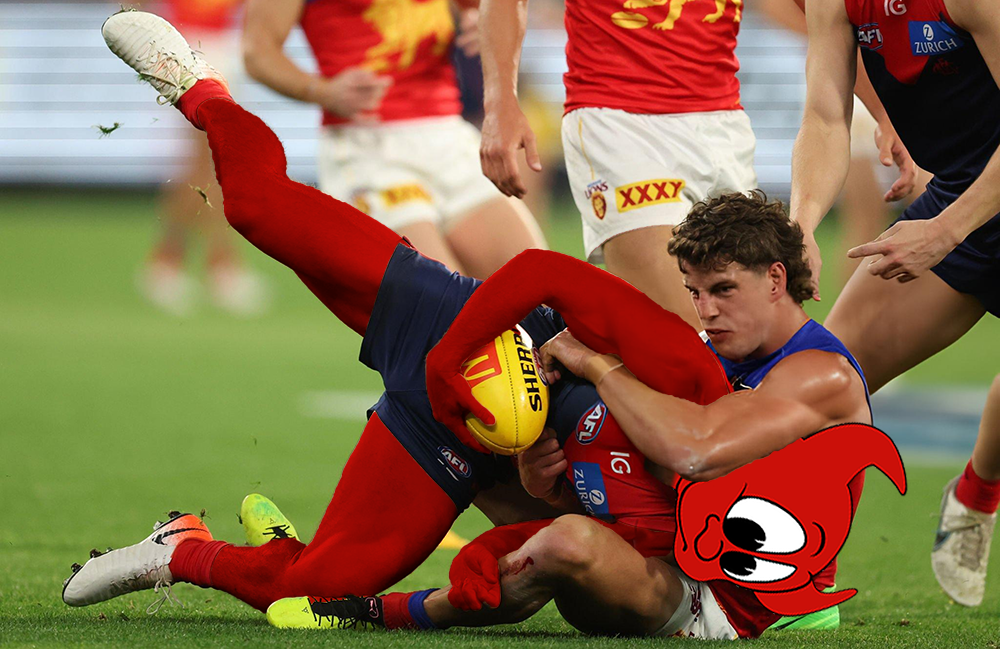

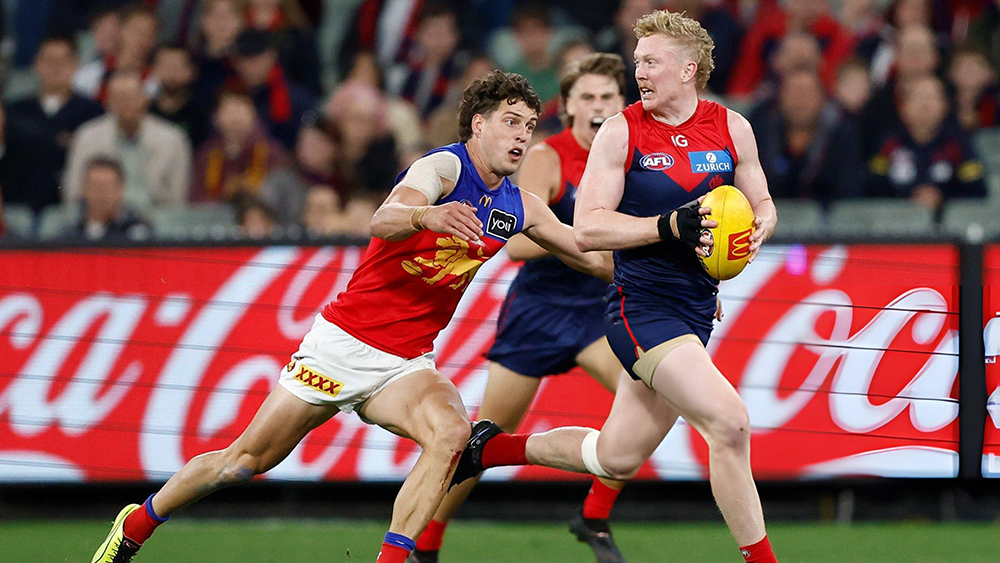
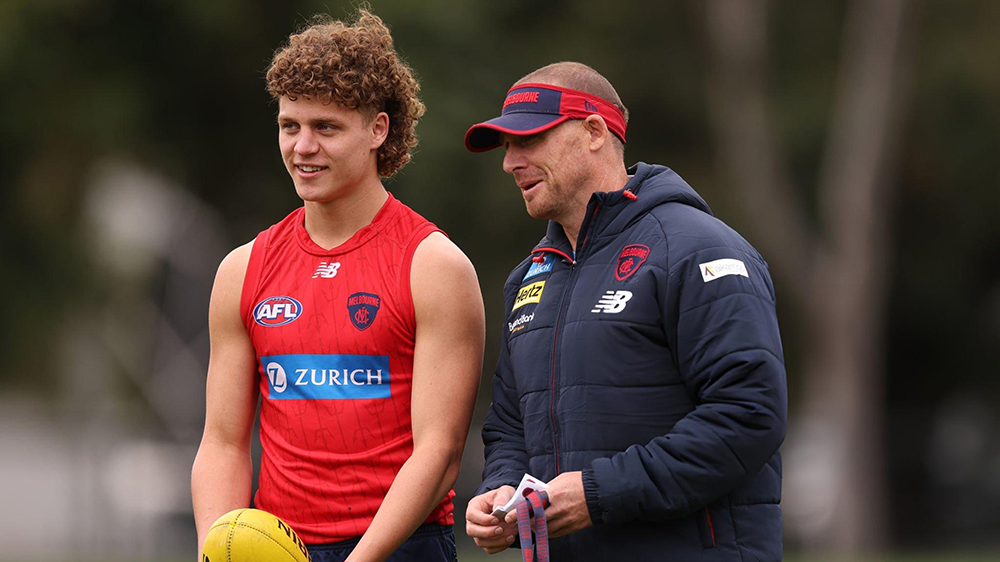
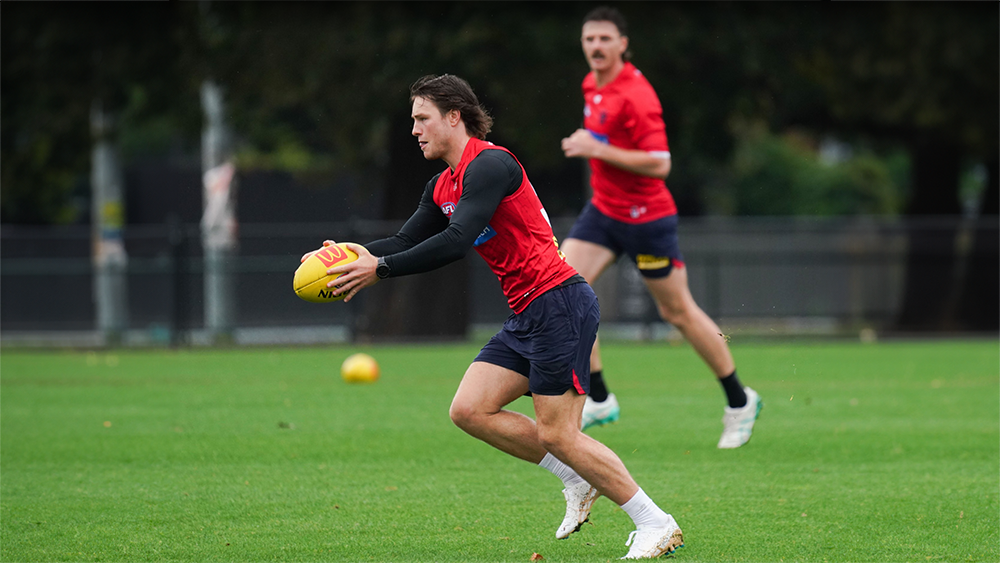
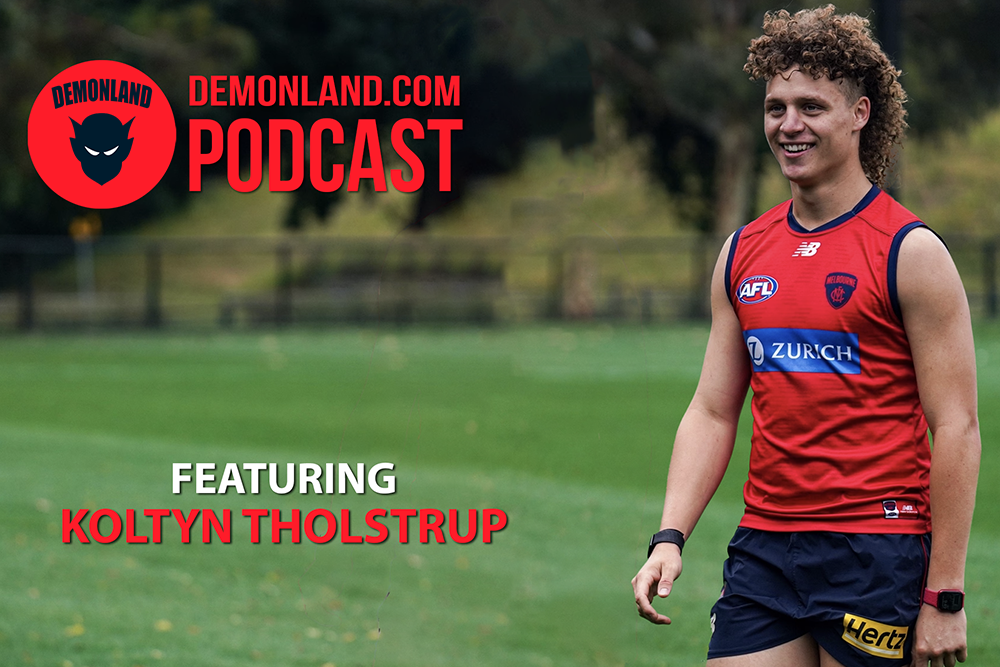
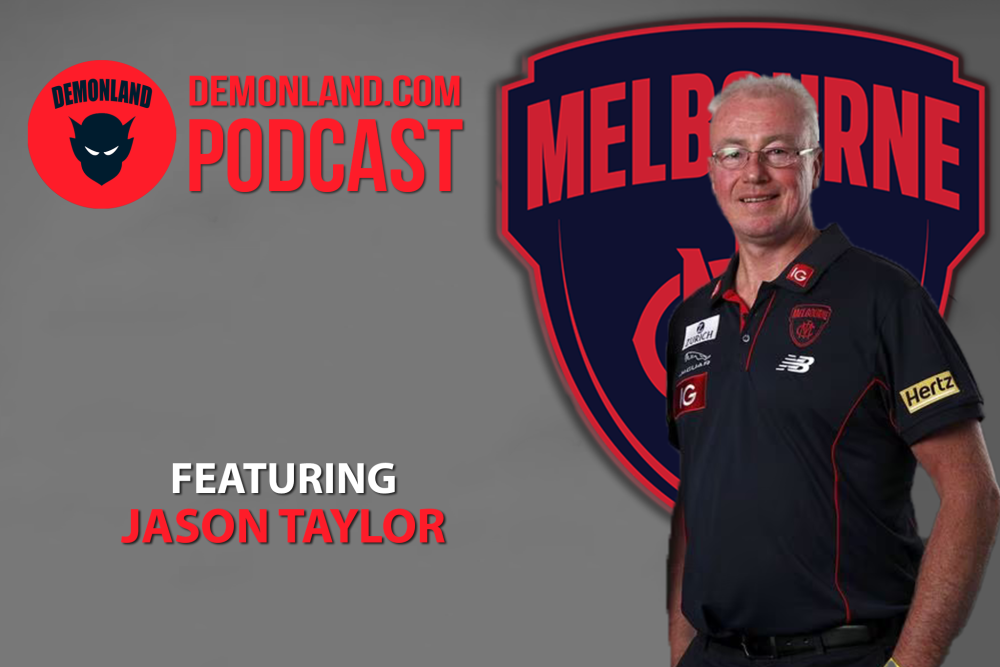
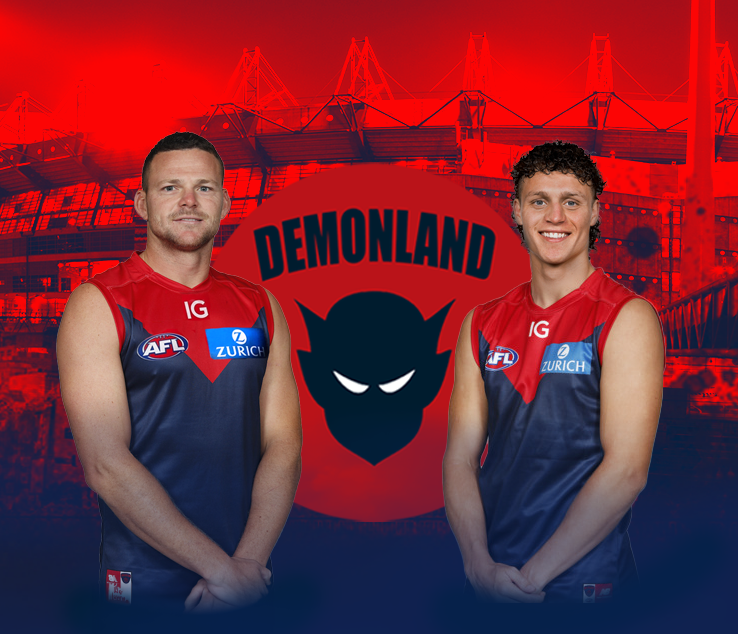
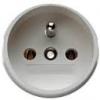

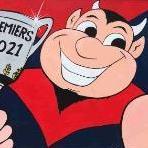
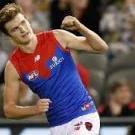
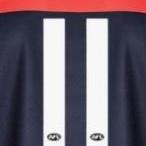
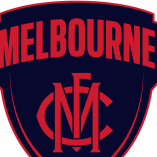






























Recommended Posts
Join the conversation
You can post now and register later. If you have an account, sign in now to post with your account.